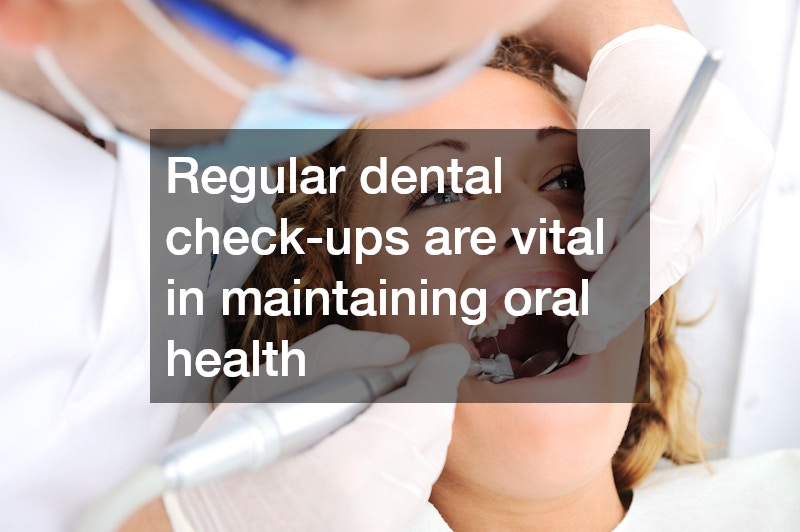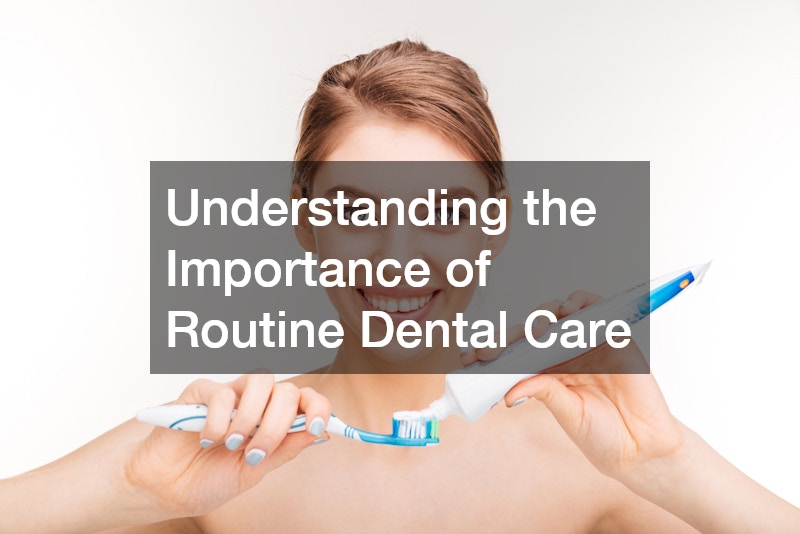Routine dental care is a cornerstone of maintaining not just oral health but overall well-being. It acts as a preventative measure against numerous potential health issues, underscoring its significance in a healthy lifestyle. The interconnection between oral health and systemic health is profound, impacting conditions like heart disease and diabetes. Therefore, embracing routine dental care is not just about maintaining a bright smile but also ensuring holistic health. This article delves into the necessity of routine dental care, detailing what it involves, how it benefits you, and why personalized care is crucial.
1. Why is Routine Dental Care Essential?
Regular dental check-ups are vital in maintaining oral health, acting as a barrier against common dental diseases. During these visits, problems like cavities and gum disease can be detected and treated early, preventing them from escalating.
The preventive aspect of dental check-ups cannot be overemphasized, as routine care minimizes the risk of developing severe dental conditions. Professional cleanings are crucial as they remove plaque buildup that daily brushing may miss.
Through proactive dental habits, individuals can achieve long-lasting oral health, reducing the need for extensive and potentially costly treatments. Routine care serves as a foundation for healthy teeth and gums throughout life.
Oral health plays a significant role in overall health, with research highlighting its influence on numerous systemic diseases. Conditions such as cardiovascular disease have been linked to poor oral hygiene, making routine dental care crucial.
Moreover, chronic inflammatory conditions like diabetes can exacerbate periodontal disease, creating a cycle of health issues. Regular dental visits help manage and mitigate these health risks by ensuring oral health is maintained.
By addressing oral health conditions promptly, individuals can reduce the likelihood of systemic health complications, reinforcing the necessity of routine care. Understanding these correlations fosters a more comprehensive approach to healthcare.

2. What Does Routine Dental Care Involve?
A typical dental check-up involves a thorough examination of the mouth, teeth, gums, and overall oral cavity. Dentists assess for any signs of disease, decay, or abnormalities that might need attention.
Professional cleanings are integral as they remove tartar, which cannot be eliminated by normal brushing, and polish teeth to prevent plaque buildup. These cleanings help maintain proper oral hygiene and aesthetic appearance.
Regular check-ups are a proactive step in preserving oral health, preventing minor issues from developing into serious problems. They serve as the routine maintenance necessary to keep teeth and gums healthy.
Routine dental care encompasses a variety of common procedures that address different aspects of oral health. Fillings, for example, are used to repair cavities and prevent further tooth decay.
X-rays are often conducted during routine visits to detect issues that are not visible to the naked eye, such as bone loss or abscesses. Fluoride treatments are also commonly provided to strengthen tooth enamel and prevent cavities.
These procedures and treatments are essential in maintaining oral health, helping to intercept potential problems early on. Through such comprehensive care, dental professionals contribute to long-term dental health.
3. How Often Should You Visit the Dentist?
For most individuals, it is generally recommended to visit the dentist every six months. This frequency allows for regular monitoring of oral health and keeps potential issues in check.
Children and adults alike benefit from these check-ups, although some individuals with specific conditions may require more frequent visits. These general guidelines serve to prevent dental problems and maintain optimal health.
Adherence to these recommendations is crucial for managing both routine dental care and any specific dental concerns. By following these guidelines, individuals can take proactive steps toward better oral health.
While general recommendations are a useful guide, personalized dental schedules consider factors such as medical history and lifestyle. Individuals at higher risk for dental issues may need more frequent visits.
By assessing these unique factors, dental professionals can tailor a care schedule that best suits your needs. This personalized approach ensures that each patient receives the optimal level of care necessary for their health.
Recognizing the importance of individualized care allows for more effective prevention and treatment strategies. Personalized schedules cater to each person’s unique circumstances, reinforcing the value of routine dental visits.
4. Can Routine Dental Care Prevent Major Dental Issues?
Routine dental care acts as the first line of defense against common dental problems, such as cavities and periodontal disease. Consistent check-ups and cleanings help to mitigate the risk of these issues arising.
By removing plaque and tartar buildup and maintaining oral hygiene, routine care reduces the likelihood of developing substantial dental concerns. Prevention through routine is more effective and less expensive than treatment of advanced issues.
With regular visits, dental problems can often be stopped in their tracks before they develop or worsen. This proactive approach aids in sustaining good oral health over the long term.
By adhering to recommended guidelines and considering personalized care schedules, individuals can prioritize their oral health effectively. Routine dental care is not only about preserving a smile but also about safeguarding overall health and well-being. Embracing routine dental care ensures lasting health benefits and guards against major dental issues. It is a commitment to proactive health care and an integral part of comprehensive well-being.

